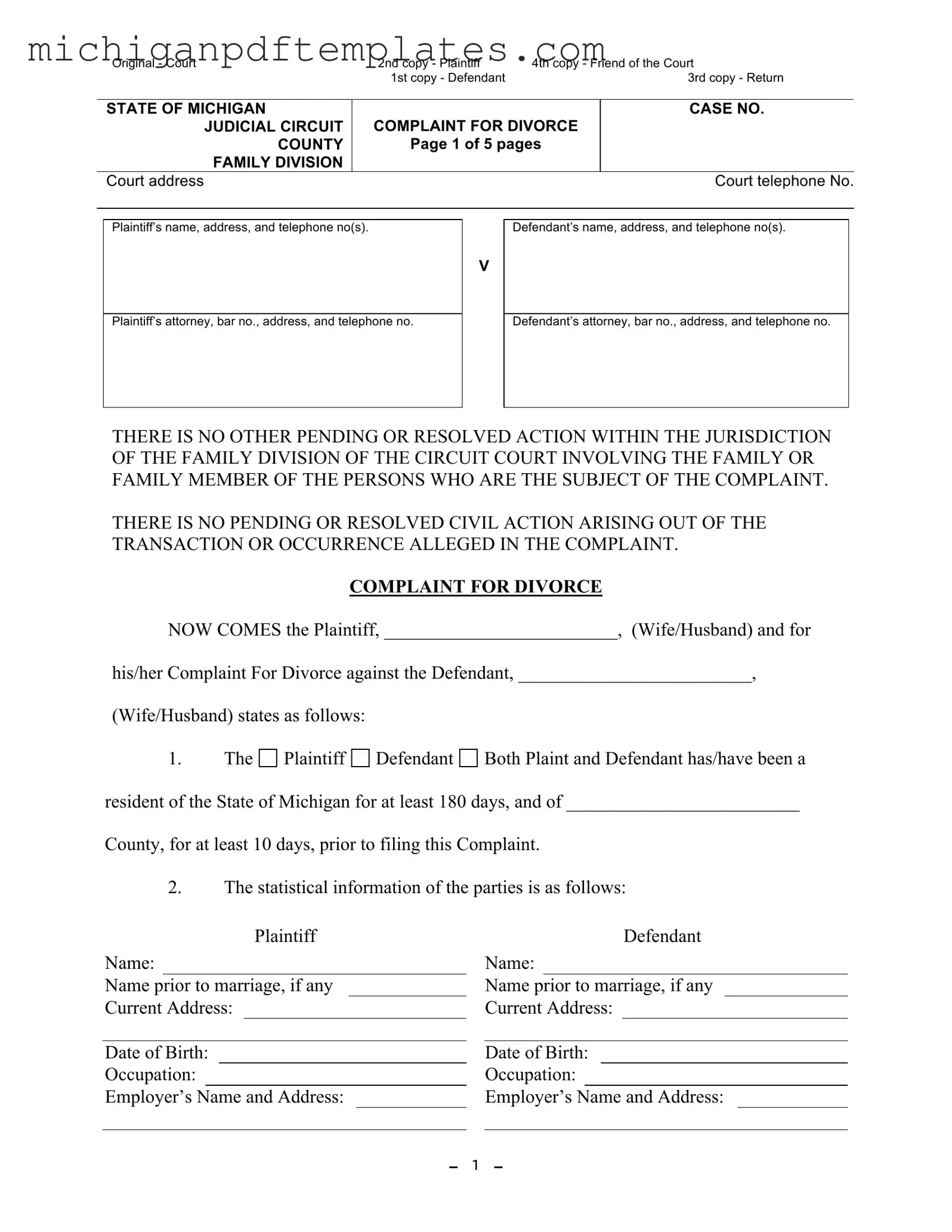Fill in Your Michigan Complaint Divorce Form
The Michigan Complaint Divorce form is a legal document used to initiate divorce proceedings in the state of Michigan. This form outlines the basic information about the parties involved, their marriage, and any children they may have, serving as a formal request to the court to dissolve the marriage. If you are ready to take the next step in your divorce process, fill out the form by clicking the button below.
Get Your Form Now

Fill in Your Michigan Complaint Divorce Form
Get Your Form Now

Get Your Form Now
or
▼ PDF Form
Finish this form quickly and move on
Fill in and complete Michigan Complaint Divorce online quickly.